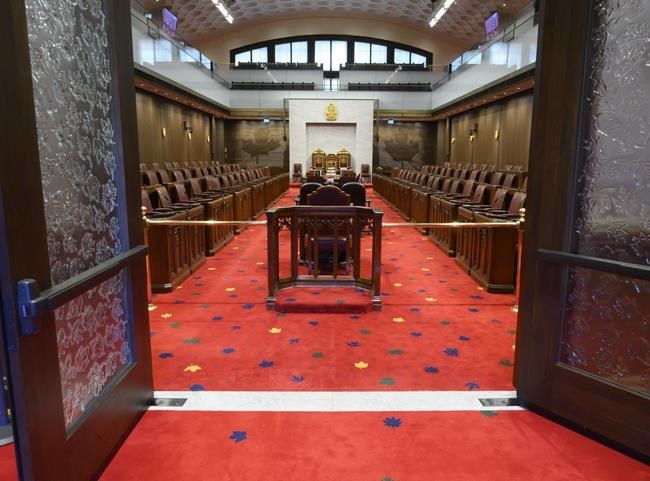OTTAWA — A Senate bill that would require Canadians to verify their age to access internet porn is proceeding without the support of the Liberal government, which warns the bill does too little to protect children from online harm.
Sen. Julie Miville-Dechêne, an Independent Senators Group member and sponsor of the bill, said she can't understand why 133 Liberal MPs voted against it, while other parties agreed to send it to committee for further study.
The Liberals have their own plans for legislation aimed at protecting Canadians online, but it doesn't do anything to prevent underage access to online porn, Miville-Dechêne said Thursday.
"Never, never have I had any indication that in the (Liberal's proposed) online harms bill there will be anything to protect children against those porn platforms."
A spokesperson for the Canadian heritage minister told The Canadian Press earlier this year that the government was working on its own approach to dealing with online harms, and the Senate bill overlapped with their work. The Justice Department is now leading the charge to bring forward the online harms bill.
"The biggest issue we need to look at is why the bill is fairly narrow in its application with respect to harms to children," Liberal MP Kevin Lamoureux said Monday of Miville-Dechêne's bill, Bill S-210.
Lamoureux also serves as parliamentary secretary to the government House leader.
S-210 passed the Senate in the spring. It would require adult websites to verify users' ages, but does not specify how. Options could include a digital ID system or services that can estimate age based on a webcam scan of a user's face.
"We share the goal of a safer internet experience for children and youth. However, this bill is fundamentally flawed," the Canadian Heritage minister's office said Thursday.
"Experts have loudly pointed to the serious issues in this proposal around issues of privacy, security, and technology."
The bill would require the use of reliable systems that maintain user privacy and protect personal information. Adult websites that don't verify ages would face fines of up to $250,000 on their first offence.
Similar age-checking efforts have been proliferating in the U.S., where Pornhub has chosen instead to block access to its site in several states following the passage of comparable restrictions.
A spokesperson for Aylo, Pornhub's parent company, refused to discuss "hypothetical situations" when asked Thursday if the same would happen in Canada should S-210 be passed in the House of Commons.
But Pornhub is indeed fighting the bill, saying any regulations that require sites to collect significant amounts of highly sensitive personal information will put user safety in jeopardy.
The company says it prefers an approach that would verify a user's age through a device, such as a cellphone, and not a website. There are also concerns that the bill could infringe on Canadians' freedom of expression.
Earlier this year, the Liberal government put together an expert advisory group to talk about what legislative and regulatory obligations should be imposed in order to reduce harmful content online.
The group consisted of representatives from the Canadian Heritage, Justice, Innovation and Public Safety departments, as well as representatives from the RCMP.
While some experts backed the idea of age-verification, others warned it would be hard to implement without running afoul of freedom of expression, said a summary of the session that was posted online by Canadian Heritage.
Several government departments are currently looking at legislation that would take a more "holistic approach to dealing with things that impact or harm young people," Lamoureux said in the House of Commons.
This report by The Canadian Press was first published Dec. 14, 2023.
Mickey Djuric, The Canadian Press



